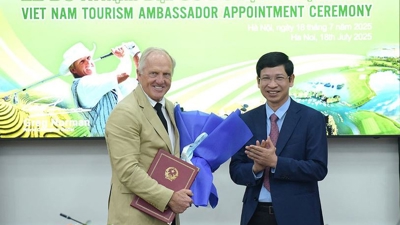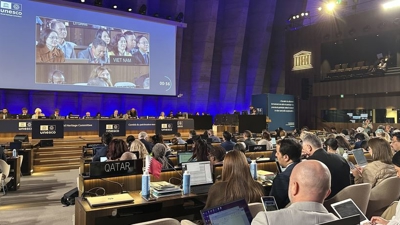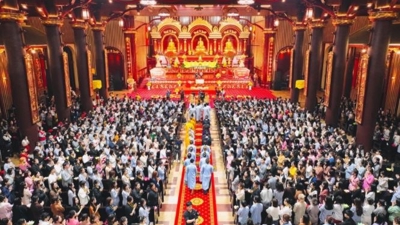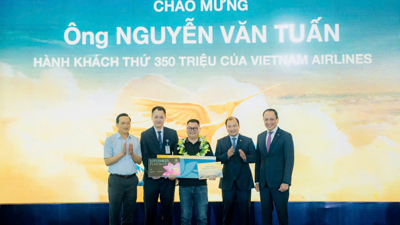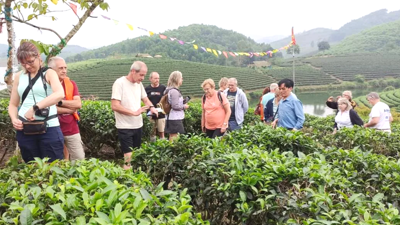Frasers Hospitality heads to Vinh Phuc
Mr. Mark Chan, Chief Operating Officer at Frasers Hospitality, tells VET about its expansion plans in Vietnam and the potential the country’s hospitality industry holds.
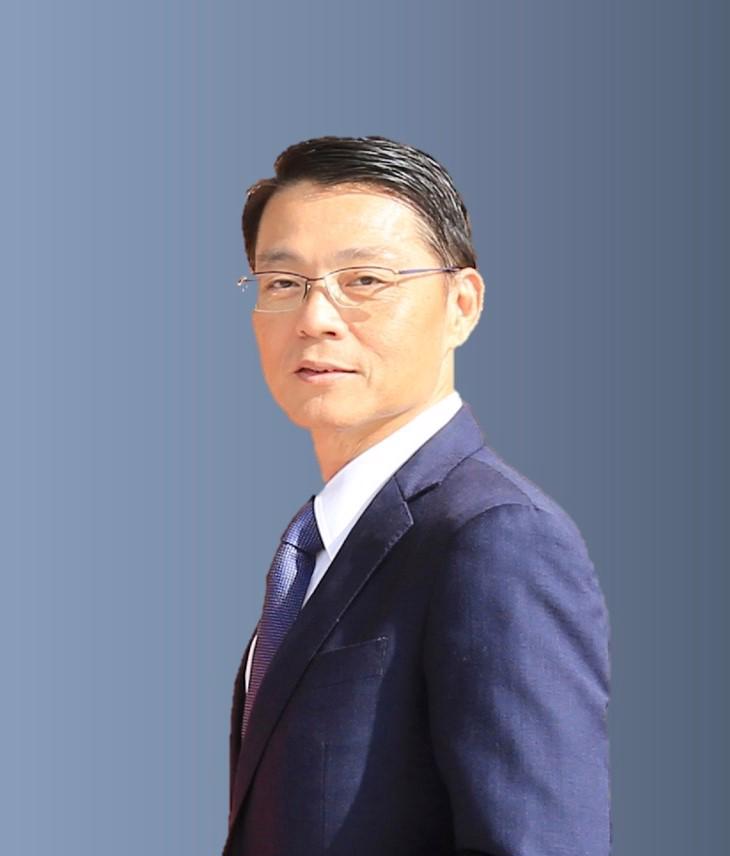
Modena by Fraser Vinh Yen is the first Modena by Fraser launched in Vietnam and the fourth Frasers Hospitality property in Vietnam. Why did the brand decide to expand in Vietnam now?
If we look at how Vinh Phuc is thriving and look at how the number of industrial parks in Vietnam is growing, we see that there is a lot of potential for long-stay accommodation.
Vietnam is a key market for us so expansion here is always on our radar. We just launched Fraser Residence Hanoi a year ago, and opened a new 96-unit tower wing in Fraser Suites Hanoi that now caters to shorter stays and has a new suite of lifestyle amenities such as a rooftop pool that offers stunning views of West Lake and an elegant Japanese restaurant.
We are now introducing a new brand to the Vietnamese market that will cater to an entirely different traveler segment. Vinh Phuc has great potential, especially with 100,000 workers as well as small and medium-sized enterprises (SMEs) and foreign companies laying down roots in the province.
Besides Modena by Fraser Vinh Yen, what are Frasers Hospitality’s upcoming plans in Vietnam?
We are expecting a number of openings this year, especially in Asia-Pacific and China. In Vietnam, besides our two properties in Hanoi, we also have Capri by Fraser, Ho Chi Minh City. When Modena by Fraser Vinh Yen opens, that will make it four properties in Vietnam.
We are in a good position to accelerate our growth here. We see growth prospects in Vietnam, as the country has done well in attracting FDI and developing the manufacturing sector. There are also manufacturers arriving from China. Vietnam is therefore important for us, and I hope we will be able to develop more properties in both Hanoi and Ho Chi Minh City.
Our Frasers Hospitality brand is well-known globally for its stable of luxury and high-quality properties. I am sure that we will attract more partners in Vietnam who want to collaborate and build on our vision of meeting the evolving needs of guests and bringing value to our partners.
Hai Phong and central Da Nang cities are also areas where we are keen to take Frasers Hospitality. However, we are prioritizing growth in Hanoi and Ho Chi Minh City, as the cities have rising demand for long-stay serviced apartments as the business infrastructure extends beyond the city center.
What are your thoughts on Vietnam’s hospitality sector?
I see strong potential in the industry. Many foreign companies are coming to Vietnam from China, South Korea, and Japan. The latter two countries have companies that are investing strongly in Vietnam and sending senior management to oversee growth. This gives rise to strong demand for quality, safe accommodation, which we are able to provide.
I also see that Vietnamese are beginning to take note of the value of serviced apartments. For example, when people move from one district to another to work, they will often choose serviced apartments for convenience, safety, and comfort. Therefore, I see potential not only from foreign investment but also from growing local demand.
What are the challenges facing serviced apartment providers in Vietnam?
Firstly, one of the key challenges the industry now faces is the after-effects of the pandemic. Like many other hospitality businesses, we face human resources issues, especially in finding high-quality workers who are passionate about the industry. Secondly, inflation has led to a high cost of operations. As such, we are constantly thinking of innovative ways to ensure business continuity without compromising on service.
How do you view the business operations of Frasers Hospitality in Vietnam post-pandemic?
I think we are a lot more connected following the pandemic. Prior to that, we were looking at how to structure ourselves to become a stronger business entity.
When the pandemic hit, we took the opportunity to step up our transformation, such as developing the tech infrastructure that connects all our properties, from London to Saudi Arabia and Shanghai to Hanoi, Singapore, or Sydney, more seamlessly. We launched a new website at the end of 2021 and we are reviewing a more consolidated service offering for Vietnam, building on the synergies of our existing properties.
This foundation allows us to share data, because we understand that data is the next currency of business. With the right data, we will be able to drive more personalized, targeted business activities. This is also why we can do things faster and more flexibly these days.
What should Vietnam do to promote the development of its hospitality sector?
Education about the industry is necessary. The serviced apartment sector is important and quite different from built-to-rent individual houses, where there is no guaranteed service, security, or quality. Understanding and educating the public about serviced apartments could be one way to stimulate local demand. If the government can increase FDI volumes, it will result in more stays and, in turn, the hospitality industry will benefit.
As a serviced apartment operator, we want to build strong local teams and stimulate growth in the countries and cities we are in. That means investing in staff training, upskilling their service standards, and providing products and services that tap into the innate Vietnamese warmth and hospitality.


